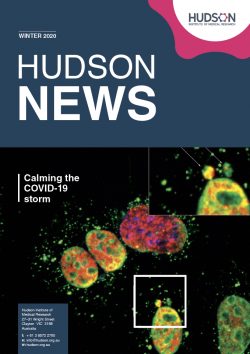Our scientific teams with expertise in inflammation, infection and immunity hold vital clues to help tackle deadly virus outbreaks—like COVID-19.
Inflammation is a normal, protective reaction to infection—and a critical first step in activating the body’s full immune response. However, if uncontrolled, inflammation can lead to a range of debilitating and life-threatening conditions—acute respiratory syndromes, sepsis, chronic obstructive pulmonary disease, inflammatory bowel disease, lupus, pneumonia, endometriosis, infertility and even cancer.
The life-threatening acute respiratory distress syndrome (ARDS) in severe COVID-19 cases results from hyper-inflammation, similar to that seen during other SARS, MERS and avian influenza outbreaks. While most infections can be mild and cleared quickly, this is not true of all cases. The effect on our aged and immune-compromised communities has been devastating. Restricting this inflammation could help save lives before antiviral therapies and vaccines are developed and ready.
Several research teams at Hudson Institute are working on different approaches to curb this hyper-inflammation. In addition, we are investigating why some patients are affected more severely by COVID-19 than others—including the differences seen in adults and children.
When it comes to responding to a new infectious disease, there are many different pieces of the puzzle. In this issue, we look at some of the innovative approaches underway at Hudson Institute.
COVID-19 FACTS
-
The coronavirus pandemic will affect millions globally
-
The life-threatening acute respiratory distress syndrome (ARDS) in severe COVID-19 cases results from hyper-inflammation
-
The infection is most severe in the aged and immune-compromised
-
The SARS CoV-2 virus appears to have originated in bats and passed to humans via an intermediary mammal
-
COVID-19 is the most severe global pandemic since ‘Spanish’ influenza in 1918–1919, which killed between 50-100 million people and infected about a third of the world’s population.
-
Previous
Director’s message -
Next
Using our immune system to fight COVID-19

